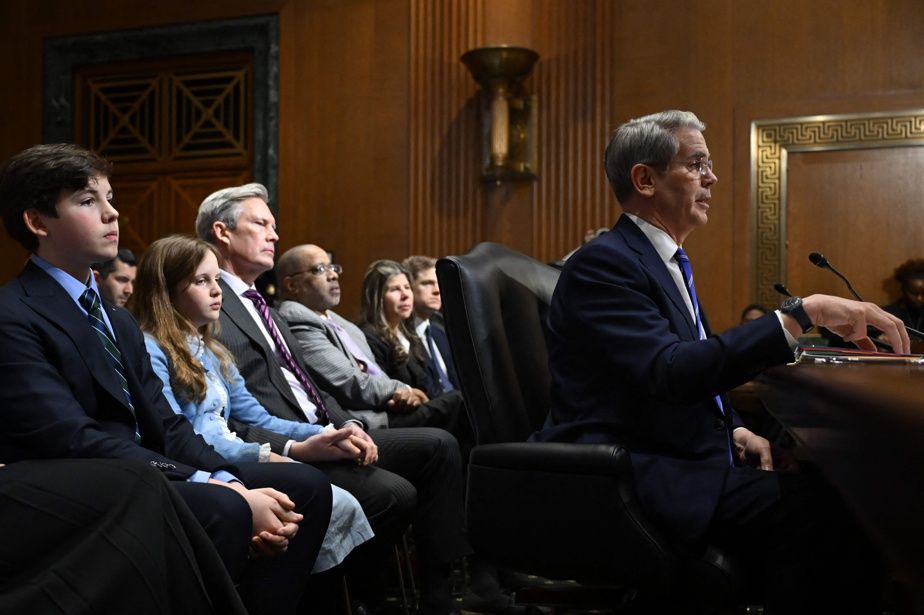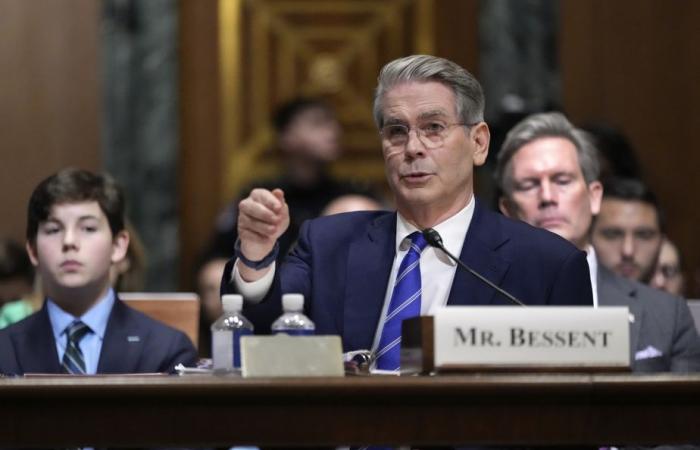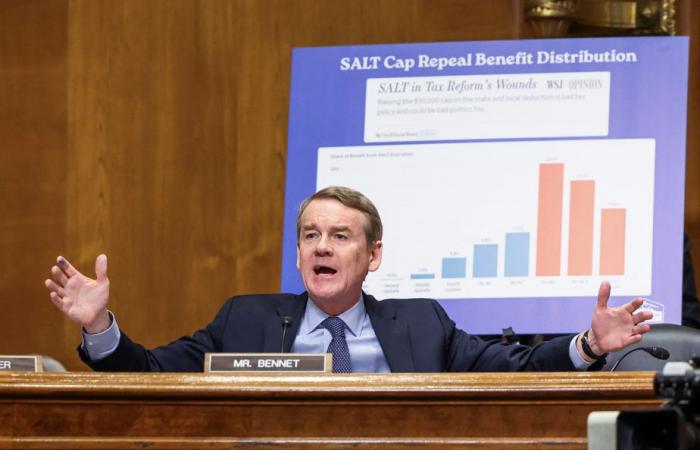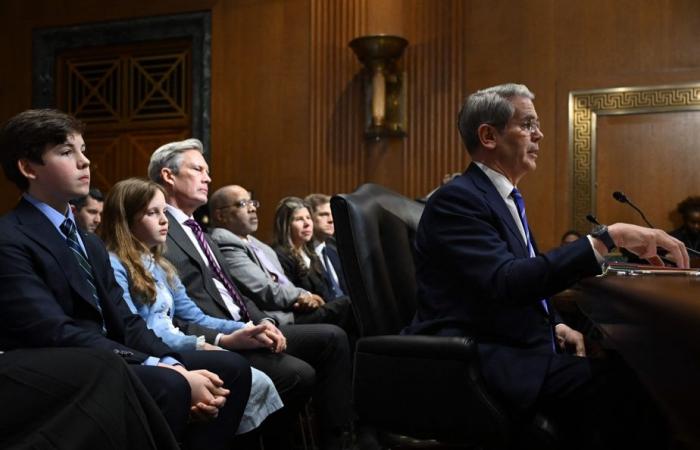(Washington) US President-elect Donald Trump’s economic program should help launch a “new economic golden age” in the United States, said his candidate for Treasury Secretary, Scott Bessent, during his hearing before the Senate THURSDAY.
Posted at 12:03 p.m.
Erwan LUCAS
Agence France-Presse
“I believe President Trump has a once-in-a-generation opportunity to usher in a new economic golden age that will create jobs, wealth and prosperity for all Americans “, declared Mr. Bessent during his hearing before the Senate Financial Affairs Committee.
The Republican candidate, who won the presidential election on November 5, plans in particular to perpetuate the tax cuts voted during his first term, which expire in 2027, and even to strengthen them.
A necessity, insisted Mr. Bessent, who presented as an “economic calamity” a possible non-renewal of these tax cuts. “We must make these reductions permanent,” he insisted.
“You plan to give money to the same people, to the richest, there is no trickle-down,” on the contrary denounced Democratic Senator Michael Bennet.
PHOTO KEVIN LAMARQUE, REUTERS
Democratic Senator Michael Bennett
He also plans to impose customs duties of 10 to 20% on all products entering the United States, and even of 60% to 100% on products coming from China.
A cost that will not be passed on to American consumers or small businesses, assured Mr. Bessent, taking up the idea that tax cuts on American products will make them more competitive and that the increase in customs duties will be in fine painless.
In recent weeks, Mr. Trump has also announced his desire to impose 25% customs duties on products from Mexico and Canada, both of which are parties to the Canada-United States-Mexico Agreement. (USMCA), negotiated and signed during his first term.
“Spending problem”
Another objective is to reduce federal spending, while the public deficit is expected to exceed 7% of GDP this year. The president-elect has already expressed his desire to return to aid for renewable energies as well as certain provisions provided for in the Inflation Reduction Act (IRA), the major green plan of outgoing President Joe Biden.
“The federal government has a big spending problem,” added Mr. Bessent during his introductory remarks during his hearing. “We must work to put our house in order and adapt the state’s domestic spending, which has increased by more than 40% over the last four years.”

PHOTO ANDREW CABALLERO-REYNOLDS, AGENCE FRANCE-PRESSE
Scott Bessant
“We don’t have a tax revenue problem in the United States, we have a spending problem,” he said.
However, he is not in favor of abandoning the debt ceiling, which Mr. Trump would like to abolish, believing that it would amount to “removing the handbrake from your car”.
But “the United States is not going to default on its debt if I am confirmed,” he added.
Furthermore, when asked about the latest set of sanctions against the Russian oil and gas sector by the outgoing American government, Mr. Bessent regretted the timing which he considered late, ensuring he was ready to go further.
“If confirmed and if President Trump requests it, if it is part of his strategy to end the war in Ukraine, I am fully prepared to strengthen sanctions, particularly against the Russian oil sector, to the levels necessary to bring Russia to the negotiating table,” insisted Scott Bessent.
Appointed to the post of Treasury Secretary at the end of November, Mr. Bessent has an image likely to reassure the markets, which know him particularly well as an asset manager via his investment company, Key Square Capital Management.
He also assured that he wanted to respect the independence of the Federal Reserve, judging that it must be “independent when it comes to determining monetary policy” and adding that the elements published in the press expressing the desire to Donald Trump to have a say in the matter were “very inaccurate”.
A specialist in the foreign exchange market and debt, he is considered by analysts to be equipped to face the wall of debt facing the federal government.
Himself an ardent defender of free trade, he assured that Donald Trump was also one, despite his desire to reintroduce customs duties on all products entering the United States.
For Mr. Bessent, the inflationary effects of customs duties could be zero, particularly if they are gradually implemented.








